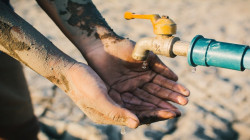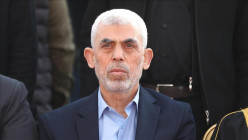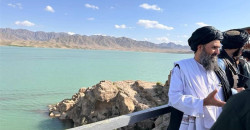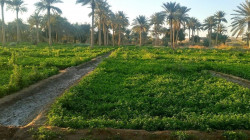Iran puts Iraq on the line of new crisis and Baghdad officially objects
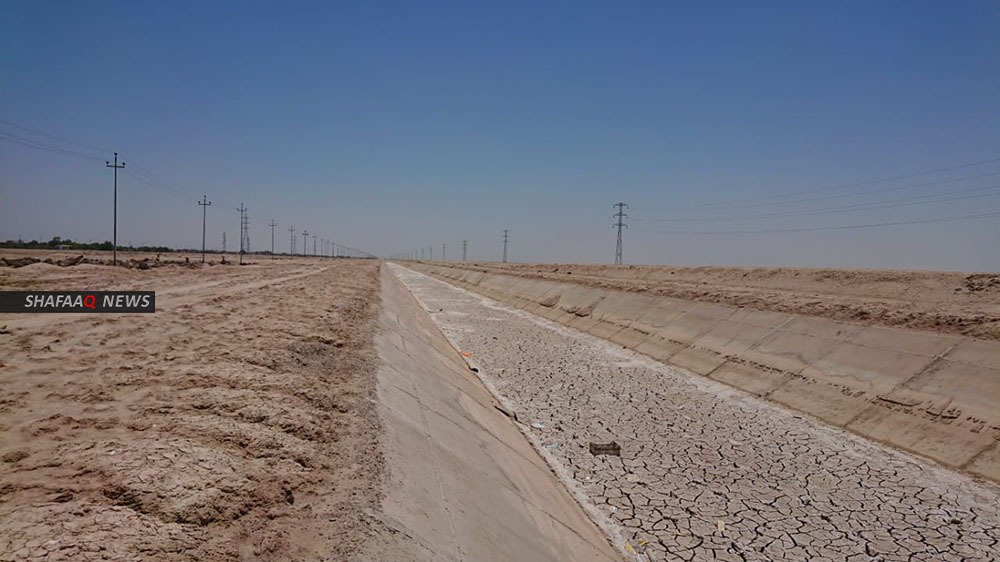
Shafaq News / A water crisis resurfaced in Iraq against the backdrop of Iran's inauguration of a new dam, amid fears and warnings of a humanitarian disaster that could hit two administrative units in Diyala. While the Ministry of Water Resources made a formal objection to the Iranian side, hoping to reach "diplomatic understandings" soon.
According to information revealed by the director of the Qazaniyah district, Mazen Al-Khuza'ie, Iran recently inaugurated a dam in the Harran Valley - the largest floodwater source for eastern Diyala - which runs from the Iranian border to Diyala.
The new dam has decreased the water levels in the border areas of Mandali and Qazaniyah and caused a major shortage of drinking water.
Al-Khuza'ie pointed out that the new dam can hold more than 100 million m3 of water. It is the second of its kind in the Valley of Harran and is located 30 km from the border of Mandali. He considered the construction of the dam as the beginning of a water crisis that will deprive more than 50% of Mandali and Qazaniyah's population of drinking water, destroy tens of thousands of dunums of orchards and agricultural land, and interrupt the water stock of the Mandali and Qazaniyah dams.
"The disruption of Iran's seasonal floods will cause a major shortage of underground water that feeds wells and keep the reliance on springs water - which are located within the areas between Diyala and Iran – as they will soon dry up due to the absence of clean-up and maintenance projects because of the dangers of land mines", Al-Khuza'ie continued.
He also called on the Water Resources and Foreign Affairs ministries to intervene and find solutions to the Iranian dam crisis, and to consider international agreements on rivers and water resources between countries, noting, "The Iranian dam has become a reality and its consequences on Mandali and Qazaniyah are approaching".
The director of Qazaniyah called on the security authorities to treat and remove the excesses on the Mandali-Miqdadiyah river and ensure that raw water supplies reach Qazaniyah and Mandali for drinking and watering purposes to avoid a humanitarian catastrophe.
Iraq relies on water flowing into the country from the Tigris and Euphrates rivers, as well as several tributaries from Turkey and Iran.
During the last two decades, the flows of these rivers have diminished due to the development of upstream agriculture, population growth, industrial development, dam construction, diversion of watercourses, as well as reduced rainfall and snow in winter, which has harmed the provision of drinking water and irrigation in Iraq.
Iraq's need for water is increasing in the absence of clear international agreements between upstream and estuaries to divide major rivers' water.
Political and social activist Ali Abdul Sattar Al-Hajjiyah said that Iran's cut-off of floodwaters was "an extension of the thirst series that Iran has practiced over the past years".
"The Ministries of Foreign Affairs and Water Resources are responsible for the water crises and Iran's indirect water war because they neglected the water resources file despite the strong political and economic relations between Iraq and Iran", Al-Hijjiayh told Shafaq News agency.
He also criticized the neglect of the Jaafar spring file on the Iraqi-Iranian border, the water of which flows towards Mandali and Qazaniyah, "The concerned authorities have neglected those wells and springs buried in cement since the Iran-Iraq war without any plans or programs to clean and take advantage of their water resources".
Torrential rains flowing from border areas are the largest water source for Qazaniyah and Mandali due to the distance and isolation of both from Diyala.
Ministry of Water Resources' spokesman, Ali Radhi Thamer, noted that there is diplomatic contact between technical committees formed by the Iraqi and Iranian sides to resolve the issue of water resources.
He also said that meetings are expected to be held soon to discuss those important issues.
"Iraq shares several rivers and valleys with Iran, and that water should be shared equitably according to the water protocol of the 1975 Algiers Agreement between Iraq and Iran, as well as the committees formed in 2014 to prepare detailed studies to divide the water resources between the two sides", Thamer stated to Shafaq News agency.
He stressed the existence of official addresses of the Ministry of Water Resources to the Iranian side through diplomatic channels to approach and inform Iraq in advance before implementing any project on the joint rivers, noting that the ministry has made official objections about the "Harran" dam and that the channels of dialogue are open to resolving the issue of shared waters.
The spokesman noted that an Iraqi official delegation - that included representatives of the Ministry of Water Resources - had recently visited Iran to resolve the joint water agreements through committees formed by the two sides.
Thamer said that Iran's flood revenues this season have declined significantly compared to previous years, with the lack of water reserves for the Hamrin and Darbandikhan lakes. He added that the Ministry of Water Resources had prepared plans and measures to deal with the water crisis in Diyala; most notably strengthening the water reserves of lakes across the Tigris River, removing excesses on rivers and streams, and rationalizing water consumption as much as possible.
"The ministry has mobilized its efforts to take advantage of water revenues, launch operations and campaigns, clean up rivers, valleys, and waterways, and approve the equitable distribution of water resources among administrative units", Thamer concluded.
